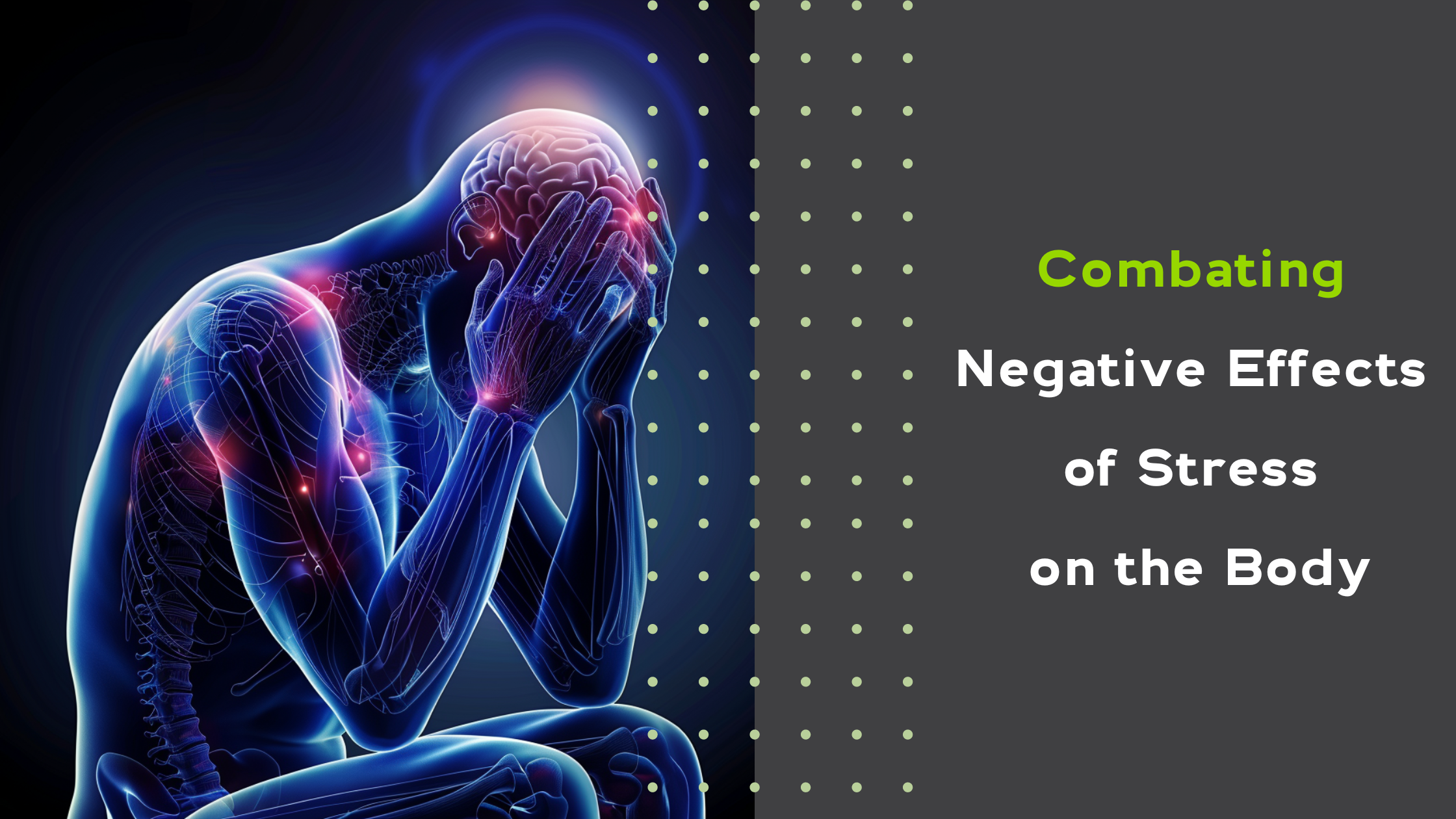
Nearly half of all American adults say that stress has negatively impacted their health. Understanding how stress can impact your body and your health long-term and what you can do now is vital to ensuring that life gets better, not worse as you age.
That’s why during Mental Health Awareness Month at SPENGA North Raleigh, we focused on how regular exercise better equips you to manage the stressful pressures of life in healthy ways.

The Impact of Stress
Although we all experience stress, we don’t have to suffer from it. SPENGA is a boutique fitness studio in North Raleigh that can help you release stress and feel more resilient against the daily pressures of life.
Stress can impact your body with:
- Headaches
- Body aches
- Stomach discomfort or GI issues, including thinning of your stomach lining leading to leaky gut symptoms
- Increased susceptibility to colds, flu, viruses, etc.
- Exacerbation of pre-existing health conditions
- The American Psychological Association reports that: “Both tension headaches and migraines are associated with chronic muscle tension in the shoulders, neck, and head. Musculoskeletal pain in the lower back and upper extremities has also been linked to stress, especially work-related stress”.
We will not only feel its effects physically, but there's a mental toll that builds up and is harder to overcome.
Among the most common stress-induced behavioral changes are:
- Anxiety
- More irritability or lack of patience
- Insomnia or sleep changes
- Loss of appetite or overeating
- Difficulty concentrating
- Restlessness
- Increased likelihood of substance use and addiction
If this state becomes chronic - and 27% of adults in the US state they are so stressed they can't function properly - it can have long-term negative effects on health, leading to the development of high blood pressure, heart disease, diabetes, obesity, depression, anxiety, skin issues, and menstrual disorders.
Winning Against Stress
Reducing the impact of stress is possible. Here are some tools to help you manage it better:
Incorporate exercise into your life: You don't need to become an elite athlete. Just starting to walk daily for at least 30 minutes will make a difference. According to Harvard Health Publishing, doing 150 minutes of brisk walking per week or even 10 minutes of moderate-intensity exercise when you feel stressed will not only help you manage stress but also positively impact all aspects of your health.
More intense exercise will help even more. Our bodies benefit from a variety of exercises, including cardio, strength training, and mindfulness when combatting stress. These practices help to reduce weight gain during stressful periods.
The SPENGA North Raleigh fitness studio offers innovative combination workouts that hit all three of these components through spin, strength (or HIIT workouts), and yoga.
Practice Yoga: The postures and flows are ancient and have been proven to help relax tense muscles, relieving areas of tension such as shoulders, back, neck, and jaw, while training your mind to stay in the present moment.
SPENGA North Raleigh sessions include a yoga component that not only helps your muscles recover from the workout, but it also helps ground you through breathing, mindfulness, and consciousness of your own body. It allows you a short period of time to become aware of the tension you are holding in your body and intentionally release it. And we’re not doing complex backwards, upside down pretzels. Just simple movements that help elongate muscles and enhance blood flow.

Rest: Following a sleep routine can be key to improving this aspect of your life. Do it at the same time consistently every day, preparing your body and your bedroom for rest. When your body is physically tired from exercise, you will sleep more deeply and restfully.
Practice music therapy: Music can relax you and lift your mood, helping you manage stressful moments or situations. It can also influence emotional states by modulating activity in brain structures involved in emotional processes. According to studies, upbeat music can make you feel optimistic and positive, while slower rhythms can calm your mind, relax your muscles, and provide tranquility as your worries dissipate.
SPENGA sessions fuel your mind with energetic and motivating music that will help you feel confident and capable of tackling the hard things in your life, and end with calming music that will restore a calm frame of mind. It’s often difficult to listen to more upbeat music while you are working as you need to be able to concentrate, but then you miss out on the endorphin release in your brain. Good music and exercise can release dopamine and endorphins in the brain easily.
Plan your time: Organizing your schedule to avoid overloading yourself with tasks and commitments will give you flexibility and even necessary moments of rest and relaxation. If you notice you're overwhelmed, set priorities, and ensure that regular self-care is part of your routine. Prioritizing your health through regular scheduled exercise will help you avoid negative effects of stress and empower you to meet life’s demands. It’s so easy to let other demands get in the way and you cut exercise. Short-changing your fitness now can lead to serious negative health impacts down the road.
Our schedule at SPENGA is flexible with early morning, late morning, mid-day, afternoon and evening sessions as well as several on Saturday to help you incorporate fitness and health into your life.
Find community: Associating with friends or others who are supportive also helps us deal with life’s stresses. At SPENGA North Raleigh, we seek to create an environment that is encouraging, where the instructors know your name, and you are not just a “member,” but a valued individual. There’s strength that comes from knowing that you are truly seen and feeling connected to a group of people with similar goals working on those goals at the same time you are.
Pay attention to your diet: Try to eat a healthy, balanced diet, including vegetables and fruits. Be consistent with mealtimes, eating in a calm and unhurried space. Avoid caffeine and alcohol whenever possible.
Ask for help: If you feel like you still can't manage stress and it's overwhelming you, reach out to family, friends, trusted individuals, or professionals who can help you. Don't feel bad about needing assistance. Recognizing when something is too much to handle is a sign of maturity and self-love.
Remember, becoming aware that you're feeling overwhelmed and unable to cope is a great first step. Informing yourself on how to improve, applying stress management techniques like the ones shared here, and seeking help are good ways to address it. At SPENGA North Raleigh, we are a local boutique fitness studio, and we can support you on this journey. Our blend of spinning, HIIT strength training, and yoga provides a comprehensive experience of cardiovascular endurance and flexibility, accompanied by a crew that truly cares about your needs. Come try us out to see how we can help you combat the stress of life. We're here for you!
Sources:
Stress statistics 2024: How common is stress and who’s most affected? Medically reviewed by Scott Dershowitz. The Checkup I By SingleCare.
2024 Jan 24. https://www.singlecare.com/blog/news/stress-statistics/
Stress effects on the body. Developed this article: William Shaw, PhD; Susan Labott-Smith, PhD, ABPP; Matthew M. Burg, PhD; Camelia Hostinar, PhD; Nicholas Alen, BA; Miranda A.L. van Tilburg, PhD; Gary G. Berntson, PhD; Steven M. Tovian, PhD, ABPP, FAClinP, FAClinHP; and Malina Spirito, PsyD, MEd. American Psychological Association. March 8, 2023.
Effects of music interventions on stress-related outcomes: a systematic review and two meta-analyses. Martina de Witte, Anouk Spruit, Susan van Hooren, Xavier Moonen and Geert-Jan Stams. Routledge, Taylor & Francis Group.
Top ways to reduce daily stress. By Heidi Godman, Executive Editor, Harvard Health Letter. Harvard Health Publishing. March 1, 2022.
Harvard Health Publishing. "The Gut-Brain Connection." *Harvard Health*, Harvard University, July 18, 2023, https://www.health.harvard.edu/diseases-and-conditions/the-gut-brain-connection.
Konturek, Peter C., et al. "Stress and the Gut: Pathophysiology, Clinical Consequences, Diagnostic Approach and Treatment Options." *Journal of Physiology and Pharmacology*, vol. 62, no. 6, Dec. 2011, pp. 591-599. PubMed, https://pubmed.ncbi.nlm.nih.gov/22314561/.
American Psychological Association. "More than Two-Thirds of Adults Say Inflation Has Them Concerned about the Future." *American Psychological Association*, 2022, https://www.apa.org/news/press/releases/stress/2022/concerned-future-inflation.

